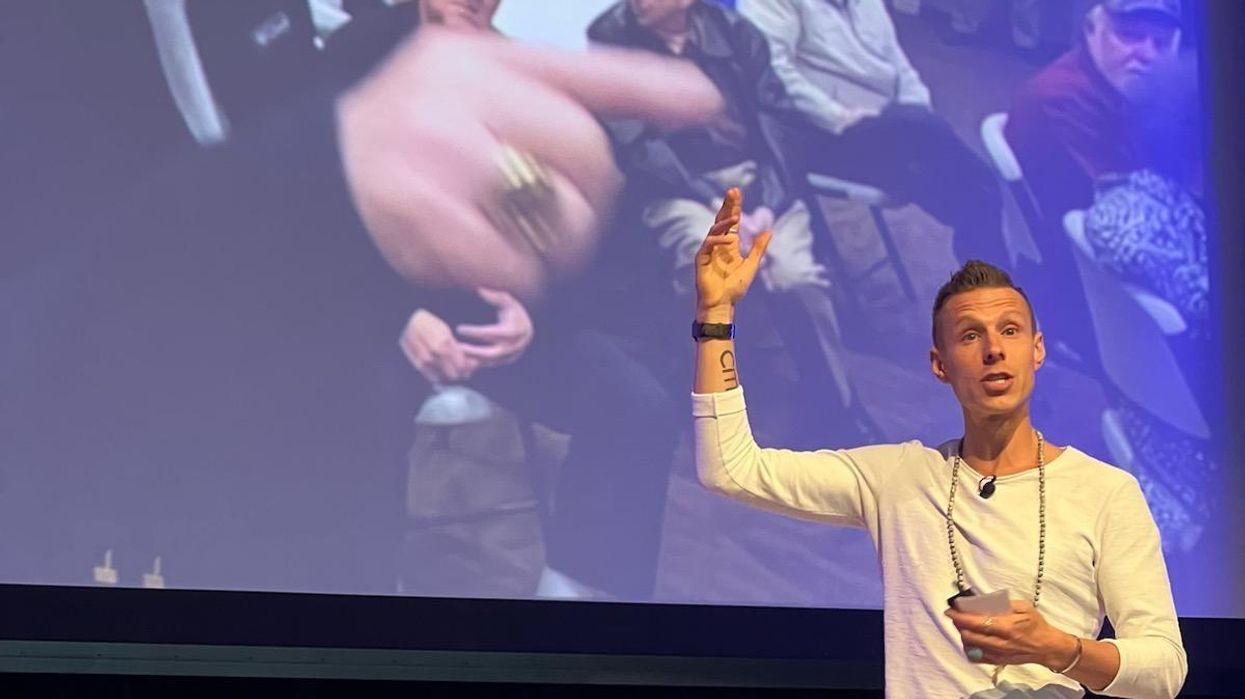In recent years, elected officials have faced threats and suffered a deterioration in mental health. While coverage of such incidents often focuses on federal and state officials, local leaders have come under attack as well.
The Elected Leaders Coalition is trying to help local officials work through those challenges, one small group at a time – for now.
Skippy Mesirow is a member of the Aspen (Colo.) City Council. He’s also the founder of the Elected Leaders Coalition and has spent the past six months directing the first cohort of a new ELC initiative called The Pride.
“It’s a one-year commitment but a lifetime opportunity,” Mesirow said of the program. Participants “cultivate a space that is truly safe, open and peer level, where they get a sense of bonding and community they can’t get anywhere else.”
The program welcomes both elected officials and staff, who separately negotiate the hazards that come with their roles in government. Participants gather once per month for 90 minute sessions covering three areas: skill training (such as overcoming personal blocks, dealing with hate and communication), group coaching and peer counselor support.
“I did not know then that the root of my desire to eat was coping mechanisms cleverly designed by my subconscious to protect me. They were the first of my unconscious self-medication strategies, nor would they be the last whose side effects I had to overcome,” Mesirow explains on the ELC website. “Over the following few decades, I remade my life, delved deep into the heart of my traumas, and turned crisis into creation and roadblocks into building blocks.”
And now he is trying to use his own growth experiences to help others to create a better political system. “I want to keep people from dropping out and burning out,” he said.
ELC surveyed participants at the six-month mark to determine whether the program has been successful. And measuring against a benchmark survey conducted at the beginning of the program, Mesirow sees positive results, even though not everyone was able to stick with the program.
“We lost a couple cohort members early on. We know the work is challenging. Most of us [at the local level] are overwhelmed,” he said. “It’s hard to look in the mirror sometimes.”
In fact, ELC grew out of Mesirow’s own desire for self-improvement, going all the way back to his years in youth football, when he was punished by a coach for being too heavy.
Everyone still in the program said they have seen either significant or slight reduction in mental health symptoms since the cohort first started meeting. And everyone also said the program has helped them with professional relationships.
“We have seen across-the-board improvements with colleagues across the council table including people they’ve had challenges with … as well as staff and the public,” Mesirow said.
Of course, working with a dozen people isn’t going to bring about nationwide change – but ELC has a plan for that.
“We need to roll out more cohorts. We need to get more data,” Mesirow explained. “We need to be more robust and reflect the larger kaleidoscope of elected leaders.”
In addition to The Pride, ELC runs a number of other programs that offer similar learning opportunities without the long-term commitment. For example, it offers multi-day “immersive” retreats for local governments or regional gatherings.
“We are trying to get enough data by the two-year mark to support what types of intervention will be the most efficacious in driving mental health and mental well-being,” Mesirow said. “That’s where we can be the best for our community.”
People interested in participating in the cohort kicking off in January can sign up now.




















Trump & Hegseth gave Mark Kelly a huge 2028 gift